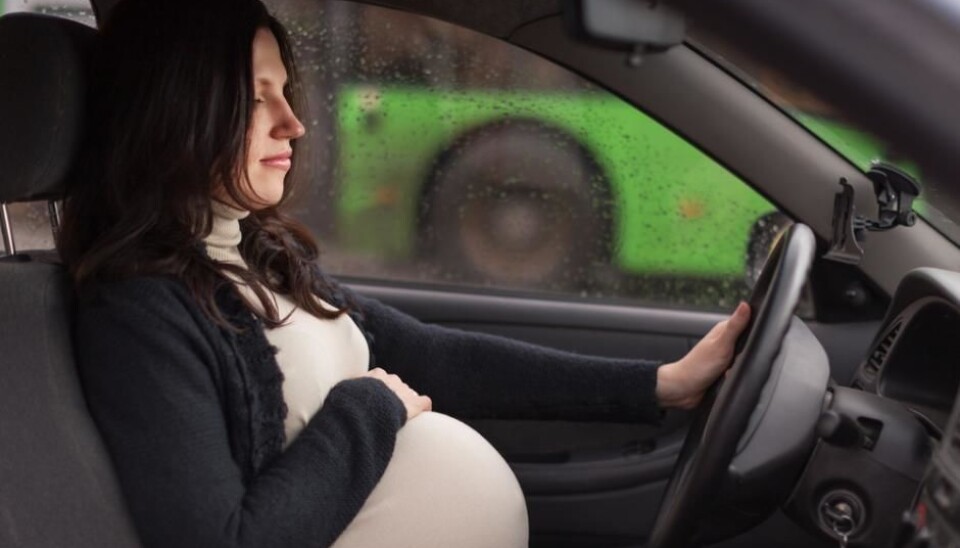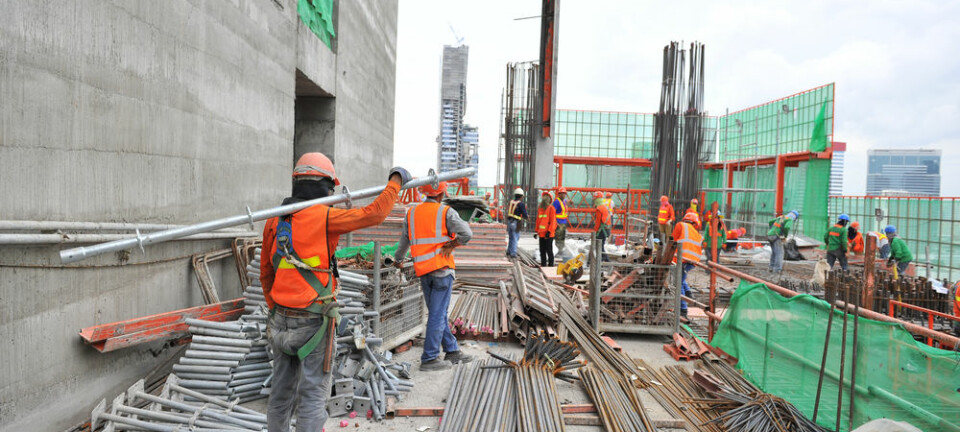
Traffic noise and pollution increase risk of pre-eclampsia during pregnancy
Pregnant women living near noisy streets with heavy traffic have a higher risk of experiencing pre-eclampsia.
Three per cent of all pregnant women experience pre-eclampsia during the course of pregnancy.
Pre-eclampsia is a condition characterised by high blood pressure and protein leaks into the blood stream, which can put the unborn child in danger.
New research shows that one of the causes of the disorder might be noise and air pollution from street traffic.
Scientists have long known that traffic pollution can have a detrimental effect on pregnant women, but this is the first time that noise has been identified as a risk factor for pre-eclampsia.
It is also the first time that scientists have discovered a relationship between car pollution and an increased risk of pre-eclampsia.
“We’re slowly starting to understand the extent of detrimental health effects caused by noise, and there needs to be an even greater focus on it because we can see that noise pollution is harmful to, for example, pregnant women,” says co-author Marie Pedersen, associate professor from the Center for Epidemiology and Screening at the University of Copenhagen.
The new results are published in the scientific journal Epidemiology.
Data from a large Danish study
Pedersen and colleagues collected data on women’s health and that of their kids since the 1990s.
In the new study, they searched for incidences of increased blood pressure and hospitalisations due to pre-eclampsia in pregnant women who gave birth between 1996 and 2002.
Using advanced computer models they estimated the concentrations of air and noise pollution at their address during their pregnancy, which they could then compare with cases of increased blood pressure and pre-eclampsia.
“Our results indicate that there is a correlation between the amount of noise and air pollution you are exposed to, and the risk of pre-eclampsia,” says Pedersen, but emphasises that more studies are needed to confirm these results.
Read More: Road traffic pollution gives children asthma
Ten decibels increase risk by ten per cent
Every ten decibels of increased noise was, on average, associated with ten per cent increased risk of pre-eclampsia.
“We’re talking about constant background noise, like road traffic. But we’re also taking noise from trains and airplanes into account,” says Pedersen.
Every 10 micrograms per cubic metre of the exhaust fume NO2 was associated with an average 7 per cent increased risk of pre-eclampsia.
“That’s a substantially increased risk,” says Pedersen.
Read More: Can noise make you sick?
Pregnancy already puts pressure on the body
The new study cannot say why noise and traffic pollution are related to an increased risk of pre-eclampsia, but Pedersen has a hypothesis.
“Women’s bodies are already under pressure from the pregnancy. Blood pressure changes automatically to provide the child with nutrients, so the woman is already at high risk of developing elevated blood pressure,” says Pedersen.
Many experimental and epidemiological studies agree that noise and air pollution can affect our health and well-being.
“Chronic noise, for example from road traffic, can lead to poor sleep, which can lead to increased stress on the body. And so, chronic noise can be a chronic stress, which leads to elevated blood pressure,” says Pedersen.
“Air pollution can also inflict constant stress on the body, which can send the immune system into overdrive to fight various inflammatory conditions. This might lead to high blood pressure, which eventually becomes pre-eclampsia.”
Read More: Air pollution and noise could be causing diabetes in pregnant women
Noise and pollution push body out of balance
PhD student Heather Boyd from Statens Serum Institute, Denmark, has read the study. She also studies pre-eclampsia.
Boyd agrees that some women are more likely to develop pre-eclampsia than others, and that noise and air pollution could be a trigger.
“It looks like some pregnant women already have a lot of pressure on the heart and circulation system, and it wouldn’t take much to push them out of balance,” says Boyd. “Stress due to noise or air pollution might just do that.”
Read More: Pollution can increase the risk of stillbirths
Next step is to study effects in children
Pedersen hopes that the new results, together with previous studies, can now be used to push for better air quality and noise reduction in busy, populated areas.
The next stage of her research will see how air and noise pollution might have affected the next generation.
“Noise and air pollution have a big influence on mothers, so our next study will see whether this exposure also affects children.”
Pedersen and colleagues will see if the children of mothers, who were exposed to air and noise pollution during pregnancy, are more likely to develop diabetes or elevated blood pressure later in life.
-------------
Read the Danish version of this article on Videnskab.dk
Translated by: Catherine Jex










